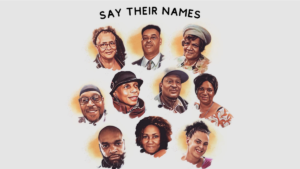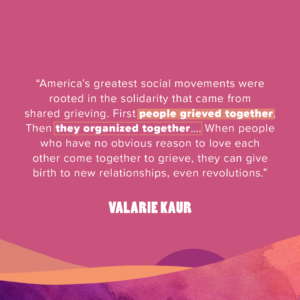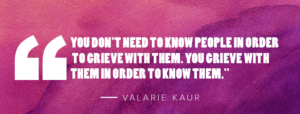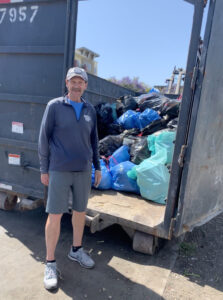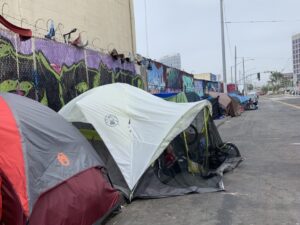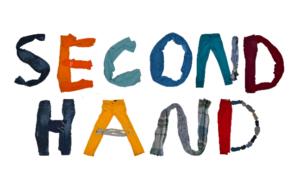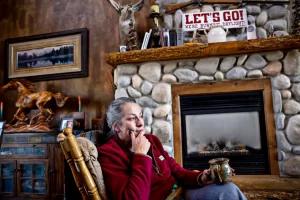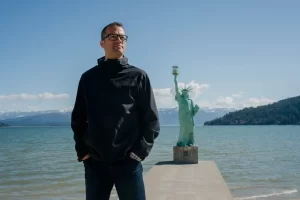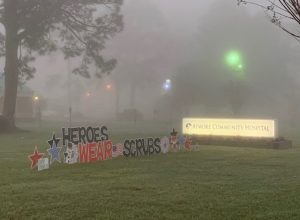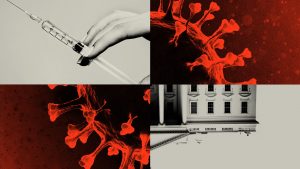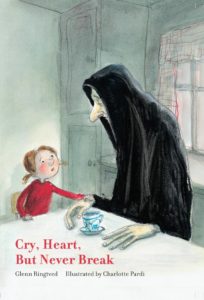grief
Saturday, May 21, 2022
May 21, 2022To solve humanity’s problems, we need well-functioning brains…eating and living well with kindness and awareness…always compassion…building our brain architecture.
Tending body is tending to the self, and tending to the self is tending community, tending community is tending country.
[On Being]
J
O
Y
“The joy of life is to put out one’s power in some natural and useful or harmless way.”
-Oliver Wendell Holmes
Valerie Kaur
Oh my loves.
“They’re going to keep killing us.” This was my first thought after the news broke about the shooting at a grocery store in Buffalo. Terror and fatigue.
I’ve organized around white supremacist hate for 21 years, since before this gunman was born. The killings have become more frequent, more effective, and more efficient at taking life. I got the news while working on a memorial video on the white supremacist mass shooting in Oak Creek 10 years ago, revisiting all that pain. How to feel fresh grief when we are already in grief? How does the heart expand, instead of shut down?
Revolutionary love is the choice to labor for others, opponents, and ourselves. What is your role right now?
Will you focus on others? Grieve with Black people, show up to local vigils and gatherings, listen to the stories, fight for anti-racist policies, build new relationships of solidarity. Do one thing in your sphere of influence — your school, workplace, house of worship, or home — to stand in love.
Will you focus on opponents? The gunman cited “replacement theory” in his manifesto, a theory that nearly one in three Americans believe. Reach out to the colleagues, neighbors, relatives in your life who subscribe to this dangerous and racist belief. Open a channel for deep listening, share stories, stop the spread of misinformation.
Will you focus on your body and your people? If you can feel how this shooting touches trauma in yourself and in people you love, this is the time to make space for healing. Grieve and rage, wail and scream, rest and breathe. Be with people who make you feel safe. Let in softness and love into the places that ache. Together, we survive this. {And what is yet inevitably to come. -dayle}
[1,000,000 + have died from COVID. 1 in 3 U.S. citizens believe the plague has ended. It has not.]
More from Valerie:
Where do you notice feeling grief in your body? What is the quality of that grief? What is the shape of grief inside of you? If it feels uncomfortable, take another deep breath and stay with it. Breathe through it.
What does your body need to be brave with this grief? What do you need to feel it and to move through this energy? What rituals are you called to? Who do you need by your side.
Who have you not yet grieved with? Whose story have you not fully let into your heart? What community’s struggle have you not fully taken in? Notice what is happening in your body. If your fists tighten, or your heart beats fast, or if shame rises to your face, it’s okay. Breathe through it. Trust that you can. The heart is a muscle: The more you use it, the stronger it becomes. You don’t need to know people in order to grieve with them. You grieve with them in order to know them.
What do you need to do to be able to grieve with them? What vigils or marches need you? What houses of worship are you ready to visit? What phone call are you ready to make? You can begin where you are, with a simple text or email, saying to someone “I’m here for you.”
How to be brave with your grief.
https://valariekaur.com/2022/04/how-to-be-brave-with-your-grief/
“Loving someone means that one day, there will be grieving. They will leave you, or you will leave them. The more you love, the more you grieve. And so I invite you to honor your grief: it’s a sign of how deeply you have loved.”
-Valerie
Community, then country.
Coronado Times
Meet Brian Trotier
Triangle Project, located in the East Village of San Diego, just across the bay.
“The Triangle Project is a pilot program created to help improve the lives of unhoused people. Brian has been helping out in this area for about fifteen years and has developed relationships with many of the residents. A huge issue has been the trash in the area. The residents, mainly living in tents, don’t have a place to dispose of their trash which is unsightly, unsanitary, and demoralizing for them. Richard Aaron Horton, 64, a longtime resident, started improving the area by picking up trash. Brian Trotier knows Richard well and has expanded the effort by securing funding from the Lucky Duck Foundation. This local foundation focuses on the homeless and has contracted with EDCO for a dumpster to collect the trash.
The concept is simple, and the results so far have been amazing. Brian reported that, as of last week, the Triangle Project had collected in the previous 20 days, 3,794 bags of trash weighing a total of 23.89 tons. It is likely that much of this, including plastic, would have found its way into our bay and ocean. Here is how it works: every Monday and Thursday, EDCO drops off a dumpster at 8 am. Brian brings bags, gloves, and a stack of cash. Volunteers walk around the area greeting residents and asking if they’d like trash bags. For almost all, the answer is an enthusiastic “yes!” Residents get to work cleaning up their neighborhood. For every full bag of trash they bring to the dumpster, Brian gives them $2. The roughly two-block area goes from being very littered to being very clean within an hour.”
“riangle Project’s results are about double what Brian and Lucky Duck projected, and the benefits have gone far beyond a cleaner neighborhood (and bay). Residents express appreciation for being seen; they get along better with each other. “They have a common enemy—trash,” Brian acknowledged.”
“Keeping the Earth clean. That’s what’s happening in the long run. It’s a domino effect.”
https://coronadotimes.com/news/2022/05/18/meet-emerald-keeper-of-the-month-brian-trotier/
The Independent
My Carbon Footprint: the rise of the nearly new
by, Kate Hughes
“So often, being more eco is inaccurately pinned to greater cost, when actually – especially when it comes to everyday buying decisions – the opposite is true.
This widespread, if subtle shift in the way we shop, including the disintegration of the stigma around nearly new, vintage, and preloved may well have some relationship with the climate crisis but make no mistake, this is largely financially led.
What I love about second-hand too, is that it doesn’t preclude us from layering up further planet and cash-saving approaches.
When the old boy on our street moved into a retirement flat the neighbours bought his lawnmower off him. There’s now one lawnmower between five households, saving space, cash and helping maintain and develop lines of local communication and a sense of community.
More than four in 10 of us gave goods away for free locally in the first few months of the year, while half donated products to charity and more than a third even made financial donations despite experiencing hardship.
Free stuff – everything from haircuts to sofas are also on the rise, the site reports.
So go forth and embrace the charity shop, the quirky apps, the leviathan websites.”
HuffPost
Living With The Far-Right Insurgency In Idaho
A radical GOP faction, in open alliance with extremists, is seizing power and targeting its opponents with cruelty.
Some wonder: Is it time to leave? (Yes. It is.)
Jennifer Ellis, photographed in her home on April 3, 2022, created Take Back Idaho to push back against the right-wing, extremist views and tactics that have dominated the state’s politics.
‘A lot has been written about both the radicalization of the Republican Party and the decline of democracy in the U.S. — about the country being at a precipice. It’s maybe easy for those warnings to become background noise, or to dismiss them as doom-mongering pieces of clickbait. But in Idaho, the nightmare scenario is crossing into reality, as an authoritarian GOP sets about to create a whiter, Christian nation.
These MAGA radicals have gestured at the future they want: no rape and incest exceptions to Idaho’s abortion ban; no emergency contraception; no gender-affirming health care for minors; the banning of books; the jailing of librarians; and maybe no public education altogether.
I recently spent a week traveling across the state, from Sandpoint in the northern panhandle down through the green slopes and whitewater of Hell’s Canyon to the plains of Ada County, and then across lava rock and sagebrush to Blackfoot. In all these places, Democrats and more moderate Republicans view Tuesday’s primaries as an existential affair. Some are considering leaving the state if MAGA extremists consolidate more power. Others are digging in their heels.
The people I talked to were not all that accustomed to alarmism, which made it striking to hear some of their voices tremble when they talked about what’s happening to their home. Their message for the rest of the country? It’s gonna get bad. The GOP really will go that far.
“They have completely rebranded what it is to be a conservative here in north Idaho, and they have literally excommunicated and cleaned house of any rational, regular conservative from their ranks.”
– Shawn Keenan, local Democratic activist
“As much as I want to point to examples of their adverse impact on the legislative process — and there’s many things to point to — part of me, the social scientist in me, the military veteran in me, wants to, you know, not just hate the player, but hate the game,” said Mathias, who served in the Coast Guard and has a Ph.D. in public policy.
A grading system like the Freedom Index makes the often inscrutable process of legislating more accessible to voters, Mathias said, and the IFF is an outrageous arbiter.
Mathias is intimately familiar with the group. Last spring, he watched state Rep. Ron Nate (FI Score: 97%) and other far-right legislators manufacture a racist moral panic about Boise State University indoctrinating students with “critical race theory.” (It was not.) Nate, using talking points lifted from an IFF white paper, argued for cutting part of the school’s budget.
Mathias says he typically likes to “keep his powder dry” in the statehouse — Democrats are such a minority there, it’s not worth the fuss to debate every proposal — but in this case, both as the only Black man in the legislature and as a Boise State alumni, he felt compelled to speak.
Going to Boise State on the GI Bill, he told his colleagues in a speech on the House floor, pausing to fight back his emotions, “provided opportunities I’d never seen in my life. It changed my life.”
Critical race theory, he continued, simply recognizes that there are institutional biases — in “housing, health, education, wealth, income,” Mathias said — that have existed since our country was founded. “People of color always come out on the losing end,” he added, his voice breaking. “Always. And I don’t think it’s unfair to acknowledge it.”
Across Idaho, the far right has laid siege to nonpartisan positions, some of which require specific expertise, and made them partisan, installing loyalists with sometimes disastrous results.
A recent Vanity Fair piece, for example, profiled members of the national neoreactionary movement, acolytes of a philosopher named Curtis Yarvin, who is a close ally of billionaire Peter Thiel. This movement, which has buy-in from powerful GOP figures, is explicit about wanting to usher in the end of democracy by purging the current government of its enemies and establishing one-party control — or, put another way, authoritarianism.
J.D. Vance — the venture capitalist and “Hillbilly Elegy” author who recently won the Ohio Republican primary for U.S. Senate — is a follower of Yarvin’s. He positively likened this prospective purge to the deadly “de-Baathification of Iraq.”
“I think Trump is going to run again in 2024,” Vance told Vanity Fair. “I think that what Trump should do, if I was giving him one piece of advice: Fire every single mid-level bureaucrat, every civil servant in the administrative state, replace them with our people.”
Vance and Trump might look to north Idaho for inspiration.
“We’re losing here. We’re losing our state. We’re losing our town. … It’s just becoming overwhelming.”
– Sandpoint Mayor Shelby Rognstad
Full report:
https://www.huffpost.com/entry/far-right-idaho_n_628277e2e4b0c84db7282bd6/amp
Endarkment
March 27, 2020“One does not become enlightened by imagining figures of light,” Carl Jung wrote, “but by making the darkness conscious.” Reading this, I realize that in a whole lifetime spent with seekers of enlightenment, I have never once heard anyone speak in hushed tones about the value of endarkenment. -Barbara Taylor Brown, author & Episcopal priest
And so even now, as light gives way to darkness, I know that once again light is born from darkness. Those who read out to help strangers are living out the oneness that is part of our spiritual DNA. -Science of Mind
What are we only now coming “to know” through this time of not-knowing?
Either we will love and help one another or we will hate and attack one another, in which latter case we will all be one another’s hell. Perhaps Sartre was not far wrong in saying that where freedom is abused, society itself turns into heel.. (L’enfer c’est les autres.”) -Thomas Merton
Yuval Noah Harari: the world after coronavirus
This storm will pass. But the choices we make now could change our lives for years to come.
Humankind is now facing a global crisis. Perhaps the biggest crisis of our generation. The decisions people and governments take in the next few weeks will probably shape the world for years to come. They will shape not just our healthcare systems but also our economy, politics and culture. We must act quickly and decisively. We should also take into account the long-term consequences of our actions. When choosing between alternatives, we should ask ourselves not only how to overcome the immediate threat, but also what kind of world we will inhabit once the storm passes. Yes, the storm will pass, humankind will survive, most of us will still be alive — but we will inhabit a different world.
Many short-term emergency measures will become a fixture of life. That is the nature of emergencies. They fast-forward historical processes. Decisions that in normal times could take years of deliberation are passed in a matter of hours. Immature and even dangerous technologies are pressed into service, because the risks of doing nothing are bigger. Entire countries serve as guinea-pigs in large-scale social experiments. What happens when everybody works from home and communicates only at a distance? What happens when entire schools and universities go online? In normal times, governments, businesses and educational boards would never agree to conduct such experiments. But these aren’t normal times.
The coronavirus epidemic is thus a major test of citizenship. In the days ahead, each one of us should choose to trust scientific data and healthcare experts over unfounded conspiracy theories and self-serving politicians. If we fail to make the right choice, we might find ourselves signing away our most precious freedoms, thinking that this is the only way to safeguard our health.
[full read]
https://www.ft.com/content/19d90308-6858-11ea-a3c9-1fe6fedcca75
How the Pandemic Will End
The U.S. may end up with the worst COVID-19 outbreak in the industrialized world. This is how it’s going to play out.
Story by Ed Yong
The testing fiasco was the original sin of America’s pandemic failure, the single flaw that undermined every other countermeasure. If the country could have accurately tracked the spread of the virus, hospitals could have executed their pandemic plans, girding themselves by allocating treatment rooms, ordering extra supplies, tagging in personnel, or assigning specific facilities to deal with COVID-19 cases. None of that happened. Instead, a health-care system that already runs close to full capacity, and that was already challenged by a severe flu season, was suddenly faced with a virus that had been left to spread, untracked, through communities around the country. Overstretched hospitals became overwhelmed. Basic protective equipment, such as masks, gowns, and gloves, began to run out. Beds will soon follow, as will the ventilators that provide oxygen to patients whose lungs are besieged by the virus.
The White House is a ghost town of scientific expertise. A pandemic-preparedness office that was part of the National Security Council was dissolved in 2018. On January 28, Luciana Borio, who was part of that team, urged the government to “act now to prevent an American epidemic,” and specifically to work with the private sector to develop fast, easy diagnostic tests. But with the office shuttered, those warnings were published in The Wall Street Journal, rather than spoken into the president’s ear. Instead of springing into action, America sat idle.
After 9/11, the world focused on counterterrorism. After COVID-19, attention may shift to public health. Expect to see a spike in funding for virology and vaccinology, a surge in students applying to public-health programs, and more domestic production of medical supplies. Expect pandemics to top the agenda at the United Nations General Assembly. Anthony Fauci is now a household name. “Regular people who think easily about what a policewoman or firefighter does finally get what an epidemiologist does,” says Monica Schoch-Spana, a medical anthropologist at the Johns Hopkins Center for Health Security.
The lessons that America draws from this experience are hard to predict, especially at a time when online algorithms and partisan broadcasters only serve news that aligns with their audience’s preconceptions. Such dynamics will be pivotal in the coming months, says Ilan Goldenberg, a foreign-policy expert at the Center for a New American Security. “The transitions after World War II or 9/11 were not about a bunch of new ideas,” he says. “The ideas are out there, but the debates will be more acute over the next few months because of the fluidity of the moment and willingness of the American public to accept big, massive changes.”
[full read]
https://www.theatlantic.com/health/archive/2020/03/how-will-coronavirus-end/608719/
7 Resources for Reliable Information About Coronavirus
1. The World Health Organization
The World Health Organization (WHO) is publishing rolling updates on the coronavirus situation as well as useful infographics and explainers, and should be your first port of call for new assessments of what is going on.
The WHO has also got a really handy page on common coronavirus myths — covering everything from whether eating garlic or taking a bath can help prevent you catching it (they can’t), to discussion about what age people are most susceptible.
2. The National Health Service
The UK’s NHS is another excellent resource. It includes easy to understand advice about symptoms, and what to do if you think you have them.
It also gives details of how and under which circumstances you need to self-isolate, and for how long, and on how to get a self-isolation medical advice note to get to your employer.
3. The BBC Coronavirus Podcast
The British Broadcasting Corporation (BBC) has launched a Coronavirus Global Update podcast, which includes a daily round-up on the spread of coronavirus.
It also includes reports from affected areas, details of the latest medical information, and the impact on health, business, and travel.
4. COVID-19 Facts
The COVID-19 Facts website works to collate information from sources including the London School of Hygiene and Tropical Medicine, the World Health Organization, and the Economist Intelligence Unit.
It also features a series covering myths around coronavirus, including analysis by the Economist Intelligence Unit of where the myth came from, and what experts say about it.
5. The New Scientist Podcast
The New Scientist podcast is becoming increasingly focused on COVID-19 — including episodes and pandemic preparations; the spread of COVID-19 and the importance of hand washing; the coronavirus vaccine; and a coronavirus special on disaster preparation and environmental change.
6. The Bill & Melinda Gates Foundation
The content platform of the Bill & Melinda Gates Foundation, the Optimist, is sharing stories, research, and news stories about coronavirus from the Foundation.
The platform works to convene expert voices from across the global health sector, including sharing expert perspectives and updates on the response to COVID-19 — and you can also sign up for the Optimist’s news digest.
7. The London School of Hygiene and Tropical Medicine
The LSHTM launched its new podcastLSHTM Viral in January 2020, in response to the outbreak of COVID-19, and is releasing a new episode every week. It specifically focuses on the science behind outbreaks and how we respond to them.
Meanwhile, the LSHTM is also launching an online short course, for those who want to better understand the emergence of COVID-19, and how we respond to it moving forward.
The free-of-charge course launches on March 23, and will cover topics like: how COVID-19 emerged and was identified; public health measures worldwide; and what’s needed to address COVID-19 in the future.
Given that everything is going to be the way it’s going to be, we’re left with an actually useful and productive question instead: “What are you going to do about it?”
-Seth Godin
Anticipatory grief.
Stocking up on compassion.
Name it.
That Discomfort You’re Feeling Is Grief
Harvard Business Review
Anticipatory grief is the mind going to the future and imagining the worst. To calm yourself, you want to come into the present.
Finally, it’s a good time to stock up on compassion. Everyone will have different levels of fear and grief and it manifests in different ways. A coworker got very snippy with me the other day and I thought, That’s not like this person; that’s how they’re dealing with this. I’m seeing their fear and anxiety. So be patient. Think about who someone usually is and not who they seem to be in this moment.
When you name it, you feel it and it moves through you. Emotions need motion. It’s important we acknowledge what we go through.
It’s absurd to think we shouldn’t feel grief right now. Let yourself feel the grief and keep going.
https://hbr.org/2020/03/that-discomfort-youre-feeling-is-grief
Cat.
February 20, 2020‘Grief is heavy with sadness and tears
Great is the noise from the earth and the seas
O love! O love! Be with us always.’ -Yusuf Islam
The paradox of nonexistence and living.
August 10, 2017“Grief, when it comes, is nothing like we expect it to be.”
Maria Popova: We continue to grapple with the paradox of our mortality. But arguably our most formidable and intense confrontation with nonexistence comes when we lose loved ones. In ‘The Year of Magical Thinking”, her harrowing record of the year following the death of her husband of four decades, John Gregory Dunne, Joan Didion, born on December 5, 1934, offers a soul-stirring meditation on grief in all its unimaginable dimensions.
Joan Didion:
“Grief has no distance. Grief comes in waves, paroxysms, sudden apprehensions that weaken the knees and blind the eyes and obliterate the dailiness of life. Virtually everyone who has ever experienced grief mentions this phenomenon of “waves.”
Grief turns out to be a place none of us know until we reach it. We anticipate (we know) that someone close to us could die, but we do not look beyond the few days or weeks that immediately follow such an imagined death. We misconstrue the nature of even those few days or weeks. We might expect if the death is sudden to feel shock. We do not expect the shock to be obliterative, dislocating to both body and mind. We might expect that we will be prostrate, inconsolable, crazy with loss. […] In the version of grief we imagine, the model will be “healing.” A certain forward movement will prevail.
The worst days will be the earliest days. We imagine that the moment to most severely test us will be the funeral, after which this hypothetical healing will take place. When we anticipate the funeral we wonder about failing to “get through it,” rise to the occasion, exhibit the “strength” that invariably gets mentioned as the correct response to death. We anticipate needing to steel ourselves the for the moment: will I be able to greet people, will I be able to leave the scene, will I be able even to get dressed that day?
We have no way of knowing that this will not be the issue. We have no way of knowing that the funeral itself will be anodyne, a kind of narcotic regression in which we are wrapped in the care of others and the gravity and meaning of the occasion. Nor can we know ahead of the fact (and here lies the heart of the difference between grief as we imagine it and grief as it is) the unending absence that follows, the void, the very opposite of meaning, the relentless succession of moments during which we will confront the experience of meaninglessness itself.”
brainpickings.org
Loss.
July 15, 2017There has been so much loss in recent weeks, in my family, and our community. My dad passed on Thursday night, June 15th. In the four weeks since he transitioned beyond the veil of Earthly consciousness, I have connected with various posts and websites that have provided thoughts and suggestions for healing through the process of grief. I hope they will help you as they have me.
︶⁀°• •° ⁀︶
Victor Hugo’s last words.
[The Independent]
His belief in the necessity of turning one’s empathy with fellow man into real change was most succinctly put in his last words however, written as a note two days before his death from pneumonia:
“To love is to act.”
~
Ram Dass:
It is important, as we get older, to learn how to grieve. Although this may sound self-evident, experience has taught me that it is not. In a culture that emphasizes stoicism and forward movement, in which time is deemed “of the essence,” and there is little toleration for slowness, inwardness, and melancholy, grieving – a healthy, necessary aspect of life – is too often overlooked. As we get older, of course, and losses mount, the need for conscious grieving becomes more pronounced. Only by learning how to grieve can we hope to leave the past behind and come into the present moment.
~
Life is about loss and letting go. ‘…all life is entwined with loss.’
[The Guardian]
Tim Lott:
‘The most resonant truth about children is that they disappear. Slowly, gradually, but eventually. Children in that sense are clocks, marking the passage of time with each new stage of growth. To see a child disappear – or rather, to become aware in any acute way of their disappearance – is to become aware of losing something you have loved more than anything you have loved in your life before, or will again.
Watching our children grow is – in an odd, inverted way – like watching our parents grow old and die. If we mourn in both cases it is perhaps because we are also weeping for ourselves – for our own impermanence, for our own mortality. For we also mark time, less visibly, in our own bodies.
As our children grow, we are also mourning the passing of a role – of ourselves as protectors, indispensable, loved passionately with the need and rose-coloured tints only children and infatuated lovers can offer us.
Think of how these processes of mourning are recorded in song, from Slipping Through My Fingers All the Time (Abba), Brown Eyed Girl (Van Morrison) to the even more heartbreaking Turn Around. My favourite version, by Nanci Griffith, reduces me to tears (and that’s not just a casual expression – it really does make me weep). And yet I go back to the song again and again. Why? What are the tears for? And why do I court them?
They are tears, partly, for loss. As such, they are simply sentimental – or at least, unnecessary. Because all life is entwined with loss. Transience is what makes life beautiful and worth living. All that comes and goes away is the heart of beauty. Children are simply the most vivid and meaningful examples of evanescence.
So, there are many kinds of tears. Perhaps we weep at a sad song about children growing up partly because we perceive the process as tragic. But they may also be tears of the recognition of beauty, because this changing is profound, and brings us most closely into touch with the heart of life itself.
In any case, the idea that we are losing love as our children grow is not true. The love I feel for my two eldest daughters, in their 20s now, is undiminished with the passing of time. I don’t get to express it so much, and they don’t feel the need to. They are independent. And that is a job well done as far as I am concerned. Yet when I look at them sometimes, I feel exactly the same emotion I felt when they were barely walking, and helpless.
We do not lose our children – not unless we are very unlucky, or very bad parents, or they are very atypical children. If our desires to hold on to our children really took root, and were acted out, it would be a disaster. This is doubtless the fate of many over-parented children. Such children could not emotionally leave home, ever.
We must let go, and then let go and then let go. And eventually they, too, must let go, as their parents pass out of this life, at first gradually then entirely and finally. I have already “lost” my children many times – as babies, as toddlers, as infants. They are always being made anew – and yet are always, at some deep level, the same. Parallel changes are happening to me, too, if I am doing it right. That is, I am always losing my children only in the sense that I am always losing myself.
For if I am static as a fully grown adult, then I am doing something wrong. I am holding on to myself too tightly, just as some parents hold on to their children too tightly. Life, yes, is loss and letting go. But without that loss and letting go, it would be like a plastic flower. Indestructible, but ultimately valueless.‘
~
Grief becoming joy.
July 12, 2016‘Breathing in and out of the grief point as it becomes the touch point of the heart. Experiencing joy where once grief was felt, there arises a new confidence and gratitude. And that sweet ache of connection becomes like Krishna’s flute calling, offering its pain to the Beloved.’
-Stephen & Ondrea Levine
